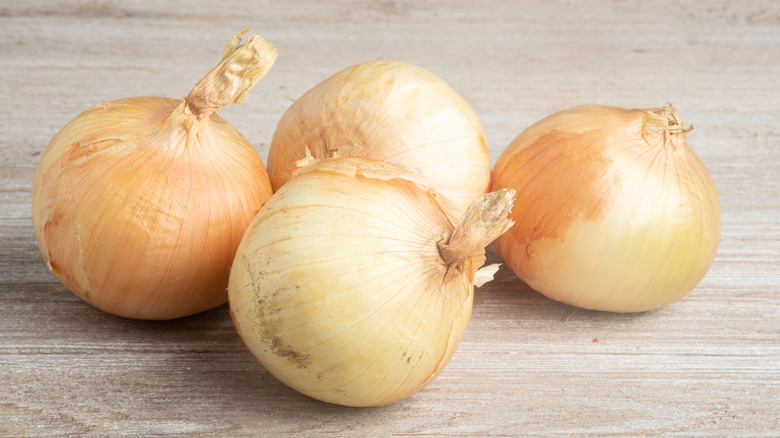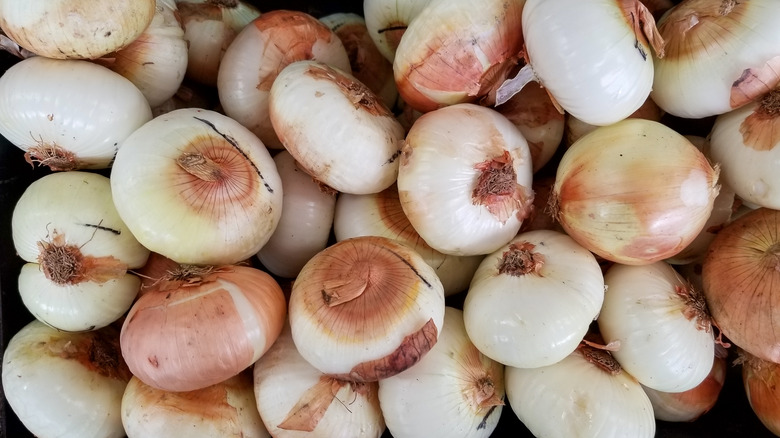What You Need To Know About The Vidalia Onion Recall
Select whole Vidalia onions were recently recalled by A&M Farms of Lyons, Georgia, per a notice published by the USDA. The recalled onions were sold in certain Publix and Wegmans grocery stores in the Eastern United States, and are being recalled after listeria monocytogenes — which the CDC explains causes listeriosis (aka food poisoning) — was found on a single pack line in one of its facilities. Once the germ was detected at the A&M Farms facility, the company contacted distributors to have the product removed from store shelves to limit possible exposures and contamination.
Listeriosis is an infection that can be dangerous for newborns, the elderly, and people with weakened immune systems. Some infections have been known to cause death in these populations. It is important to monitor any suspected exposures for a prolonged period as it may take between one and four weeks for symptoms to present. Healthy and fit individuals will most often suffer mild symptoms such as fever and diarrhea. Pregnant people will often experience mild flu-like symptoms, but infection may also cause miscarriage, stillbirth, premature delivery, or life-threatening infection of the newborn.
Customers may receive refunds for the onions
The recalled onions were labeled with the Little Bear brand and available for purchase between June 22 and 24 at select Wegmans and Publix locations (via USDA). The affected Wegmans grocery stores are located in New York, Pennsylvania, and Massachusetts, according to Wegmans. The affected Publix locations are located in Florida, and the following Georgia counties: Arrow, Clarke, DeKalb, Forsyth, Fulton, Gwinnett, Hall, Jackson, Oconee, and Walton. Possibly contaminated items were sold with the PLU 4159 or 4166.
Six-pound bags of the Vidalia onions were also sent to a Sam's Club distribution center in North Carolina. According to the USDA, Sam's Club reported those products were destroyed before they were made available for purchase to consumers. A&M Farms says that a majority of the possibly exposed items did not make it to store shelves.
Anyone who believes they may have purchased the contaminated onions should immediately dispose of them. Customers can also receive refunds for the onions by returning them to their place of purchase with a receipt.

